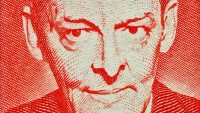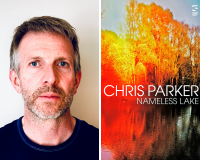My children’s book about India was rejected because I’m white
whyevolutionistrue.com – Saturday August 26, 2023
As you may recall, several years ago I wrote a children’s book called Mr. Das and his Fifty Cats. In 2022, I mentioned it (and my travails finding a home for it) here, where I gave a brief description:
“Mr. Das and his 50 cats” [is] a fictional work that is actually based heavily on a real person: Birendra Das, one of India’s most famous sweetmakers (his business, K. C. Das and company, is famous in Kolkata). I stayed with Mr. Das in Bangalore (now called “Bengaluru”) to do “field work” observing his life and his cats, and found that he indeed had around fifty cats, whose names I learned. Around these facts—and the knowlege that Mr. Das took all of those cats in as strays—I wove a fictional tale about the cats invading the factory in times of famine and eating all the milk, cream, and yogurt. (Indian sweets are heavily laden with sugar and dairy products.) The story of how that led to the closure of Mr. Das’s sweet business, and then how the cats fixed the situation in the end, is the subject of my book.
I quite liked the story, as did others, including parents of small children and school teachers to whom I vetted the book (the story is meant for kids from about first to fourth grades). I got a lot of good suggestions before it arrived at its final incarnation.
Eventually, on the advice of my agent (who doesn’t handle non-science books), I sent the manuscript to a well known agent in England, who worked with a very famous illustrator. They both liked the book a lot and agreed to provide illustrations, which, given the fame of the illustrator, would almost guarantee publication.
I got a few illustrations, but then: radio silence. This lasted for months, and every six months I’d email to ask what was going on. I’d get some reply that finding a publisher was still in the works. Then, more radio silence. This went on for several years, and I grew increasingly depressed.

Literary Agents - Unfit For Purpose?
dailykos.com – Saturday August 26, 2023

Like many authors, I’ve long wondered what added value agents add to the publishing industry. Disclaimer: I have never had an agent, and I value Independent Publishers.
I shall not mention this agent’s name and I will paraphrase what she wrote to the Twitter (X) Writing Community. So it wasn’t a personal reply, this counts as an announcement.
She said that when a writer is passed over by an agent, the writer shouldn’t assume it was a quality of prose issue. And that she just passed on a “most delightful, well-written manuscript”. One that she felt sure was going to sell.
An agent’s job is to sell books to publishers. Some also edit. Let’s think for a moment about the art of selling. (Disclaimer: ex sales manager.) If I am trying to sell a product, I don’t give a damn whether or not the salesperson “falls in love with” or “has a special spark” about it. No, I want him to make his quota, preferably more.

Where are today's modernists?
thebookseller.com – Wednesday August 23, 2023

A hundred years ago modernism was reinventing the rules of poetry with linguistic innovation and experimentation, pushing readers into a new relationship with the world via the word. Poets found fresh ways of expressing through style and form and publishers provided the engine room to connect their work with readers. So, what happened to this populism of the difficult? Today this tradition of experimentation has moved into underground channels where some of our most dynamic poets are creating incredible work, outside the earshot of major publishers.
Last year saw the centenary of The Waste Land. There were Eliot-themed events and even a festival called fragments, which took place across twenty-two City of London churches. The 1923 centenary should also be celebrated as a century ago this year was an incredible year for poetry. Wallace Stevens published Harmonium, his first collection of poetry completed at the age of 44. Stevens’ work brought a striking philosophical angle to modern poetry, demonstrating that everything that poetry could do existed in the imagination; not the world as it is, but as the mind – and language – perceives it.

Self-Publishing Update
By G. Miki Hayden
Instructor at Writer's Digest University online and private writing coach
firstwriter.com – Monday August 7, 2023

According to an April 2023 survey by the (UK) Alliance of Independent Authors (ALLi), income of self-published authors increased substantially in 2022 over 2021, coming in at a median amount of $12,749, a figure actually higher than those of authors at traditional publishers. The 2,200 respondents to the survey were from all major English-speaking countries (with more than half from the U.S.).
A quarter of those replying had released their first book in 2020, while 60 percent reported first publishing in 2015-2022. Over half said they’d published more than 10 books on their own, while 20 percent had published more than 30 titles. Romance, fantasy/sci fi/speculative, and crime/thriller/detective novels were by far the most prevalent genres in which self-publishers were active.
Author M. J. Rose may have started the drive to self-publish, or some of it, when in 1998, she self-published her erotic-suspense novel Lip Service about the world of phone sex, a novel that had been rejected by all the agents and publishers she’d queried. Online, she sold 2,500 books (which is quite a lot), and the novel was after that acquired by Pocket Books. Other authors jumped into the self-publishing arena, or tried, and later Rose said, “I couldn’t do it now.” She did it because then the field was ripe and not yet harvested. However, Rose did set a model for other authors to imitate; and following persistently, some authors flourished. Not all thrived, however, and though self-publishing became and stayed “a thing,” the niche not too long after seemed to have lost its luster.
But now, something appears to be going on. Authors are self-publishing again. Some are bringing out their backlists, and others are simply spending a little money and getting into the game. I talked to four self-publishing authors. See if you can identify with or be inspired by any of their paths.

How to Pitch an Article to a Magazine
omegaunderground.com – Friday August 4, 2023

As a writer, you want to get your words in front of as many readers as possible. But this can be challenging when the competition from other writers is so great—to say nothing of the competition from other media like TV, social media, and smartphones.
But you must start somewhere. And one of the best ways to get your name out there as an author is to pitch articles to magazines.

5 Ways ChatGPT Can Improve, Not Replace, Your Writing
wired.co.uk – Sunday July 23, 2023

It's been quite a year for ChatGPT, with the large language model (LLM) now taking exams, churning out content, searching the web, writing code, and more. The AI chatbot can produce its own stories, though whether they're any good is another matter.
If you're in any way involved in the business of writing, then tools like ChatGPT have the potential to complete up-end the way you work—but at this stage, it's not inevitable that journalists, authors, and copywriters will be replaced by generative AI bots.
What we can say with certainty is that ChatGPT is a reliable writing assistant, provided you use it in the right way. If you have to put words in order as part of your job, here's how ChatGPT might be able to take your writing to the next level—at least until it replaces you, anyway.

Outlander author Diana Gabaldon shares her writing tips
heraldscotland.com – Wednesday July 19, 2023

Outlander author Diana Gabaldon's nine-book series has sold more than 50 million copies world-wide.
As a major conference celebrating her best-selling books gets underway at the University of Glasgow, she shares her top three tips for writing a first novel.
1. "Read everything you can get your hands on. Read good stuff and read bad stuff because this is how you are going to learn to tell the difference.
"Why do you like one book over another? Is it because you like the characters more? Well, why do you like the characters more, is it because of the way they talk?

I finally landed a 6-figure book deal after 20 years of trying to become an author. Here's how I did it.
businessinsider.com – Wednesday July 19, 2023

Scoring a book deal is always an accomplishment, but after I dreamed of becoming an author for more than 20 years, selling a nonfiction project for six figures to a Big Five publisher felt both astonishing and hard-earned.
Like a lot of people, I'd always secretly harbored ambitions of becoming a writer, but I didn't start taking my craft seriously until my mid-20s when I invested in a Master of Fine Arts. Even then, writing remained a hobby for another few years.
In 2010, I lost my job in elementary education when an essay I wrote was publicized by the New York Post and the whole world — including my then-employer, the NYC Department of Education — was made aware that I had worked as a stripper and prostitute before becoming a schoolteacher.
I turned a humiliating experience into a flourishing freelance career, and I got serious about my ambitions to become an author.

Chris Parker on writing women narrators and seeing the world from their eyes
culturefly.co.uk – Monday July 17, 2023

I’ve been asked why I chose to make the narrator of my first novel, Nameless Lake, a woman, but really, that’s putting it the wrong way round. Something made me start writing in the voice of this character – Emma – and I only realised later that she would be the perfect narrator for the story I wanted to tell.
The roots of my decision might lie decades in the past, with the whole family rushing to the sofa in response to the mournful brass blare of the Coronation Street theme tune. Here was a world dominated by women’s voices, sharp and wild and larger-than-life yet somehow more real than anything else. I absorbed these voices long before I had an inkling that someone, somewhere had written them.
But years later, through some miracle of luck and time travel, I stood in a bar in Manchester while the Street’s creator Tony Warren shook my hand and told me he had enjoyed an episode I had written. I had somehow stepped into a parallel universe and was part of a team responsible for putting words in the characters’ mouths, fifteen of us taking turns to pick up the endless story and bring it to life by getting inside the skins of these people whose faces were as familiar to us as our own.

My A.I. Writing Robot
newyorker.com – Tuesday July 11, 2023

In May, I was confronted with a robot version of my writer self. It was made, at my request, by a Silicon Valley startup called Writer, which specializes in building artificial-intelligence tools that produce content in the voice of a particular brand or institution. In my case, it was meant to replicate my personal writing voice. Whereas a model like OpenAI’s ChatGPT is “trained” on millions of words from across the Internet, Robot Kyle runs on Writer’s bespoke model with an extra layer of training, based on some hundred and fifty thousand words of my writing alone. Writer’s pitch is that I, Human Kyle, can use Robot Kyle to generate text in a style that sounds like mine, at a speed that I could only dream of. Writer’s co-founder and chief technology officer, Waseem Alshikh, recently told me that the company’s goal is to use A.I. to “scale content and scale language.” For more than a month now, I have been experimenting with my literary automaton to see how well it accomplishes this task. Or, as Robot Kyle put it when I asked him to comment on the possibility of replacing me: “How could a machine generate the insights, observations, and unique perspectives that I provide as a human?”
Get the free newsletter | Submit a news item or article | Get Writers' News for your website





